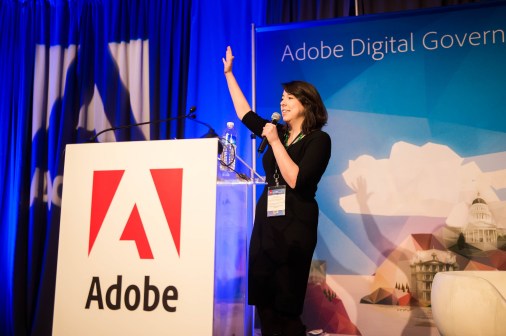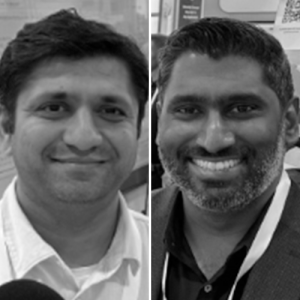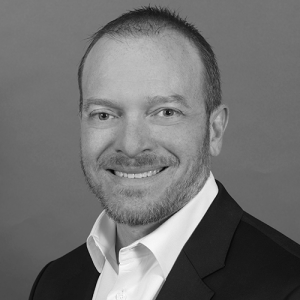 U.S. CTO Todd Park discusses White House innovation initiatives at Code for America in San Francisco.
U.S. CTO Todd Park discusses White House innovation initiatives at Code for America in San Francisco.In Silicon Valley, you’re likely to hear the phrase “minimum viable product” bandied about as if it were a standard hello, but when it comes from the mouth of a White House official, you can’t help but think the term “going public” is starting to take on a whole new meaning.
Those words, spoken by White House Director of Digital Strategy Macon Phillips, were used to describe the “lean startup” approach to development taken by team members of Project MyGov, one of five incubator-like initiatives being tackled by the new Presidential Innovation Fellows program, whose goal it is to create more efficient online government services for citizens.
Phillips, in San Francisco Thursday with U.S. Chief Technology Officer Todd Park, Chief Information Officer Steve VanRoekel, U.S. Agency for International Development Chief Innovation Officer Maura O’Neill and Deputy Chief Technology Officer Chris Vein, shared the administration’s innovation efforts with attendees at the headquarters of civic technology nonprofit Code for America.
The six-month White House fellows program, launched in August, is focused on five specific projects that include Open Data, Blue Button, RFP-EZ, MyGov and the 20% Initiative.
“The whole idea is to bring amazing entrepreneurs from outside government, into government, to work with our best innovators on game-changing projects. Projects that can actually move forward on job creation, economic growth, save taxpayers money, that will bring tangible improvements into the lives of Americans,” said Park.
He said the teams work in “agile, lean start-up mode and deliver concrete business results within six months,” adding “we define business results not as really eloquent Power Point or an exquisitely-crafted white paper, but actual outcomes.”
Park praised Code for America, often described as a “Peace Corps for geeks,” as being a key inspiration and model for the White House’s own fellowship program. Code for America’s civic partnership model pairs fellows with cities throughout the United States for one year to work on targeted technology projects.
Park and VanRoekel emphasized the role open government data plays in fueling entrepreneurial and economic progress and encouraged attendees to “scrub in and help” the fellows with their work.
“Data by itself is useless. We want to create an ecosystem of appliers,” Park said.
VanRoekel gave an overview of the White House’s digital government strategy, launched in May, and how federal agencies are creating a culture of “government as a digital asset.”
“The important part of this is really thinking outside the walls of government. It’s not always easy to connect the dots between how we are using technology inside government … and how we are fostering a culture of innovation in America. Government really plays a fascinating role,” he said.
VanRoekel said unlocking government data “by default” is critical to opening unrealized entrepreneurial opportunities, citing start-ups Trulia and Zillow as prime examples.
The public sector can expedite this, VanRoekel said, by “taking the rich storage of data we have in government and making it open, making it machine-readable, building application programming interfaces around it in a way that people on the outside can gain amazing value.”
During the event, San Francisco Mayor Ed Lee announced the city will launch its own innovation fellows program. The city will participate in the Code for America Fellows program in 2013 and celebrate “Innovation Month” in October.
“Innovation is not just about technology. It’s about a spirit of being willing to solve problems for a larger community,” Lee said.
Code for America Executive Director Jen Pahlka encouraged attendees to get involved and work with the White House on its efforts.
“This work really matters. It matters to your lives. It matters to your paycheck, but it also matters to the future of your country,” Pahlka said.



